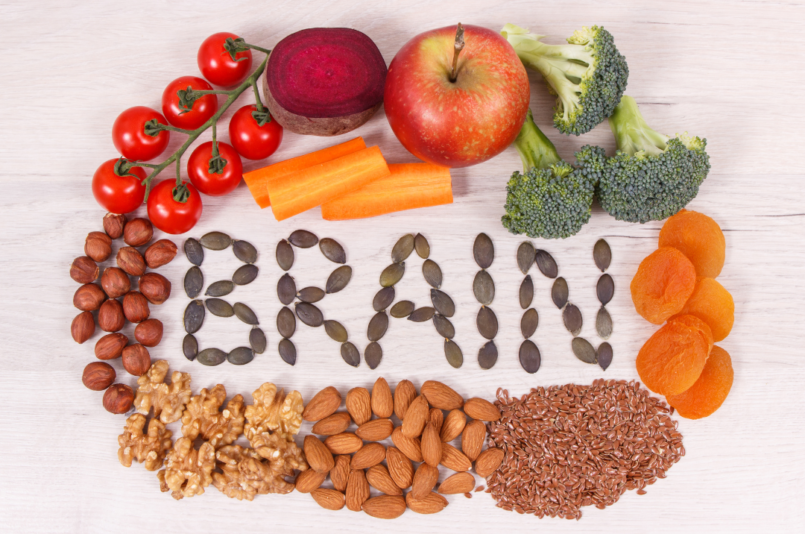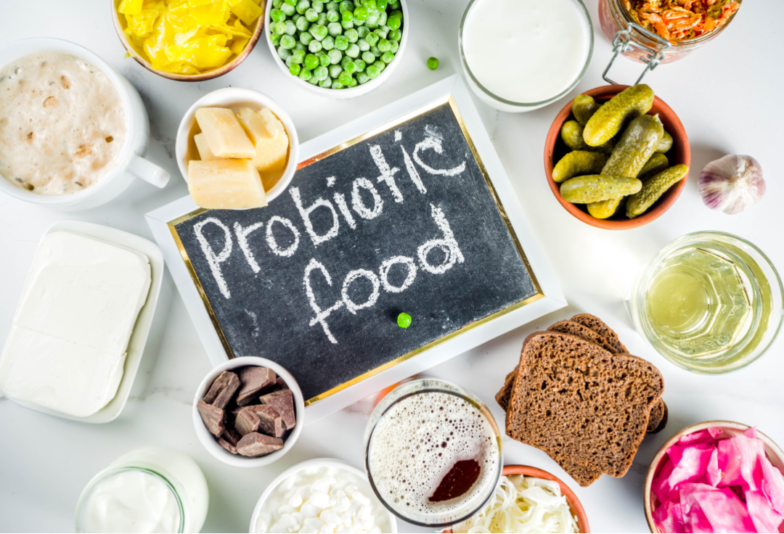With the change in weather, the air also changes as the academic calendar turns its page to the exam season. We, as parents, face various dilemmas with regards to our children’s eating habits, constant cravings for comfort food, ways to feed them proper nutrition, etc. It’s indeed a tough and challenging call, as we would want to provide foods that make them feel good, as this may ease some of that exam stress. At the same time, we need to ensure these comfort foods are menu-tailored healthy to fuel up balanced nutrition for our young scholars to perform their best.
This article highlights this balancing act, its role in maintaining good brain health, and dietary guidelines to be followed before examination for the optimum functioning of the gut and brain.
Our brain requires high-quality fuel to function adequately, so that it can send appropriate signals to different parts of our body, helping to learn new things, retain memory, recall information, regulate mood, and aid in good digestion and sleep. We should also understand that there is no single magic pill or an almighty brain food that can ensure a sharp brain. A long-term benefit of a healthy dietary pattern containing foods like fruits and vegetables, legumes, beans, whole grains, nuts, and seeds will improve your child’s performance, thinking, and decision-making capability.
FOODS THAT HELP GUT HEALTH:
The guidelines to follow for a healthy life apply to boosting your brain power, which include:
• Eat minimally processed foods.
• Include many fruits, vegetables, whole grains, beans, nuts, and seeds.
• Few dairy products, eggs, and poultry
• Limited red meat
• Consume wood-pressed oils and seeds as the primary fat source.
• Maintain good hydration.
• Avoid self-medication, especially antibiotics, as this will disturb your child’s gut microbiota.
• Avoid greasy, fat foods like French fries, chips, fried chicken, etc., as this will cloud the brain, make them sleepy, and upset the gut.
• Avoid sugar-rich junk foods like donuts, cakes, ice cream, and aerated beverages.
In addition to the above dietary guidelines, there are some foods that help strengthen our gut-brain connection:
Prebiotics:Prebiotics are foods rich in fibre, a good source of non-digestible carbohydrates, and feed your good gut bacteria, helping to maintain a healthy gastrointestinal tract. Foods like barley, oats, flaxseeds, lentils, especially pink lentils, garlic, onions, apples, and bananas, especially the green variety.
Probiotics:Probiotics are foods that help healthy bacteria colonise your GI tract, maintain a healthy microbiome, and oust bad bacteria. Fermented foods like idlis, dosas, curd, paneer, yoghurt, buttermilk, sauerkraut, kanji, kombucha, miso, and kefir.
Green Leafy Vegetables:They are loaded with brain-healthy minerals like vitamin K, folate, beta-carotene, and lutein, which strengthen your cognitive thinking. Spinach, broccoli, collards, and kale are a few examples.
Omega 3 Fatty Acid rich Foods:The unsaturated omega-3 fatty acids in fish help boost brain power. Include fish at least twice a week. Choose fish with low mercury levels, like salmon and cod. Vegetarians can substitute walnuts, flax seed, and avocados.
Berries: Flavonoids found in berries, giving them their brilliant hues, help improve memory, like strawberries and blueberries.
Nuts & Seeds: Nuts and seeds are excellent sources of protein and healthy fats. Walnuts, almonds, chia seeds, pumpkin seeds, sunflower seeds, etc.
Dark Chocolate: The benefit of cacao, which is higher in dark chocolates, is that it helps with memory and concentration. Studies have indicated that consuming dark chocolates increases brain activity.
Herbal Teas: Increases immunity and the overall well-being of our health. Warm herbal teas like mint tea, chamomile tea, peppermint tea, and tulsi tea. These have a calming effect on our bodies during examination stress.
Dietary Guidelines for the night before examination:
1. Make smart, healthy eating choices by eating a balanced meal containing proteins, vegetables, and whole carbohydrates.
2. Exam stress should not allow you to go on long hours of fasting; this will induce stress eating, and you will reach for foods that are processed, packaged, or bite-sized, which are unhealthy and may upset your gut.
3. Do not try any new foods the night before the examination. An upset stomach or food allergies to handle will be an added burden on you.
4. Simple, home-cooked foods are the best during examination days. Do not replace them with restaurant foods. 5. Make sure you do not overeat the night before the examination, as the fullness will create a bloated and unhealthy feeling.
Dietary Guidelines for the day of examination:
1. The meal time on the day of the examination should be planned an hour before travelling to the examination centre. This allows time for digestion.
2. A starving stomach will lack focus and retentivity. Long hours of starvation before examination should be avoided. Grab the power combo of apple and nuts, vegetables and hummus, bread with guacamole and veggies, or yummy bread with peanut butter.
3. If your travel time is longer to the examination centre, you can carry quick snacks like nuts, dark chocolates, and home-made granola bars.
4. Avoid overload with carbohydrates and simple sugars found in processed refined foods, sugary beverages, and sodas. This will create brain fog and diminish clarity in your thoughts and thinking capacity.
5. Consume food in a stress-free environment.
You will be able to put your best self in examinations, not only through good preparation and a healthy diet. The other two factors that play an equal role in completing the puzzle will include keeping yourself calm with reduced anxiety levels and getting good sleep.
Examinations are just part of your master plan; perseverance and focus are the keys to success. Lead a healthy lifestyle and enjoy the power of education.

This article is by Sobana Laxmi Jagaraj
Sobana is a holistic nutritionist, dedicated to helping people inculcate healthy eating into their lifestyle for long-term, sustainable benefits to their health and wellbeing. Passionate about experimenting with healthy cooking techniques and maintaining vibrant floral gardens are some of her leisure time hobbies.For any queries, you may write to her at sobana.kevin@gmail.com











